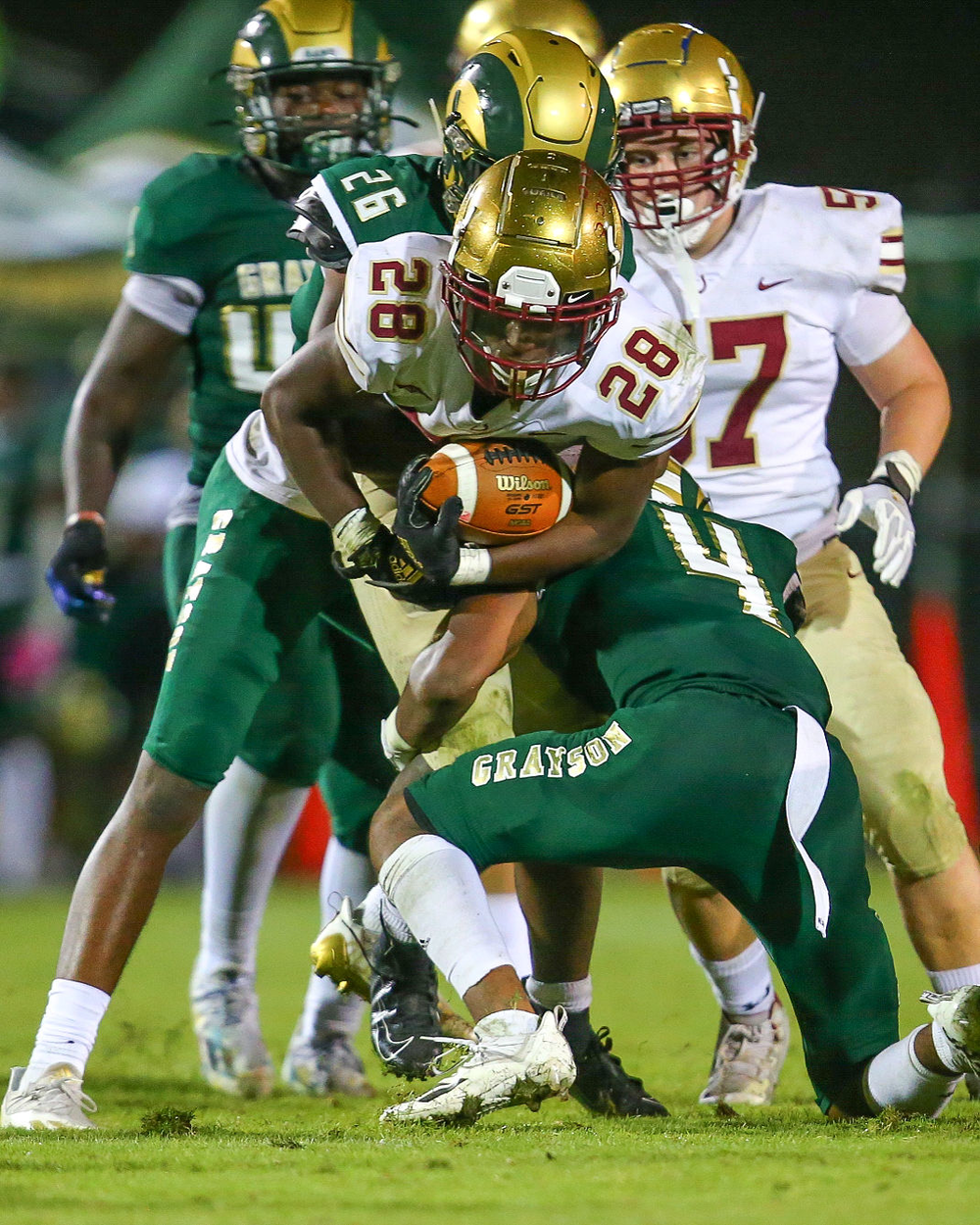
Caption
High school football teams Grayson (in green) and Brookwood contend on the field Oct. 22, 2021. The weekend of Nov. 5 sees teams learn what seed they'll end up with in the postseason play — if any.
Credit: Jay Gonzalez / GPB Sports

